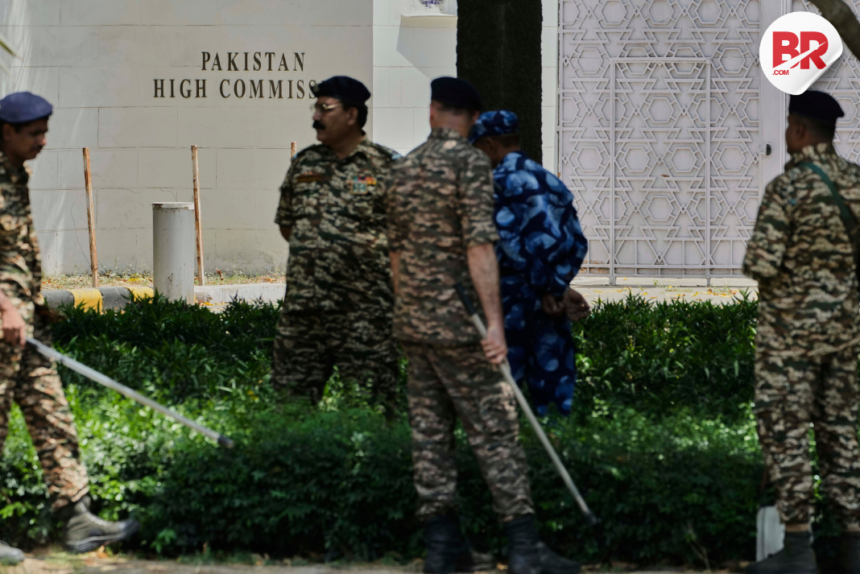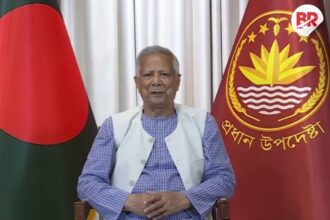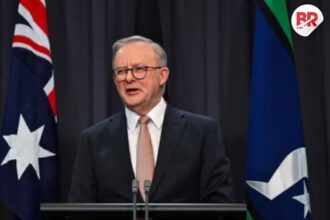
Pakistan’s claim that Lashkar-e-Taiba (LeT) is a “name of the past” has raised eyebrows and sparked a wave of controversy. This bold assertion, made by Pakistani Minister Khawaja Asif after a recent terrorist attack in the Pahalgam area of Kashmir, is as baffling as it is dangerous.
For the average person, the message is clear: denial, obfuscation, and deflection are now the go-to strategies in the face of mounting evidence.

Denial or Deception?
Asif’s claim that LeT “doesn’t exist” anymore directly contradicts overwhelming evidence linking the group to terrorist activities in Kashmir and beyond. Intelligence reports, international sanctions, and countless arrests of individuals with ties to LeT paint a very different picture.
So why deny the obvious? Is Pakistan really pretending the organization has simply vanished, or is this just a convenient attempt to shift blame elsewhere?
What’s truly absurd here is the notion that the world will just take Pakistan’s word for it. After all, denying the existence of a group like LeT is like claiming a fire has burned out when the smoke is still rising.
The TRF—New Name, Same Old Game?
Enter The Resistance Front (TRF), a group that has recently claimed responsibility for attacks in Kashmir. TRF, believed to be an offshoot of LeT, is, according to many experts, nothing more than a rebranding effort.
It’s as if Pakistan is trying to pull a fast one by changing the packaging, but keeping the same explosive contents inside.
The question on everyone’s mind is: Why does Pakistan persist in denying their support for groups like LeT, only to see new iterations of these groups spring up with the same deadly agenda?
India’s security agencies have long argued that these “new” groups are merely a smokescreen to obscure Pakistan’s ongoing support for terrorism. The goal is simple—maintain plausible deniability while continuing to destabilize Kashmir. It’s a game of semantics, but with real-world consequences.
Also Read Owaisi Blasts Pakistan After Pahalgam Horror: ‘They Asked Names, Then Killed’
A Staged Attack? Really?
As if the claim that LeT doesn’t exist wasn’t controversial enough, Asif took it a step further by suggesting that the recent attack in Kashmir was “staged.” His allegation that India orchestrated the attack to create a crisis and target Pakistan is, to say the least, utterly implausible.
Let’s break this down: India is supposed to be staging terrorist attacks to target its own interests in Kashmir? It’s a theory so far removed from logic that it begs the question: Why even make such an outlandish statement?
India wasted no time in rejecting the accusation, calling it nothing more than baseless propaganda designed to deflect attention from Pakistan’s role in the region. The absurdity of it all lies not just in the denial of reality, but in the continued effort to spin an alternative narrative that the world simply isn’t buying.
The Regional Impact: Why This Matters
The implications of these denials extend far beyond diplomatic squabbles. They have a tangible impact on the security of the region, the lives of ordinary citizens, and the international fight against terrorism.
By denying the existence of LeT, Pakistan undermines global counter-terrorism efforts. The truth is that organizations like LeT continue to be major threats, and these denials only help fuel instability.
Pakistan’s continued failure to take responsibility for terrorist activities originating from its soil makes peace harder to achieve and puts everyone in the region at risk.
Furthermore, this rhetoric fosters distrust between India and Pakistan, making meaningful dialogue nearly impossible. In a region already fraught with tension, such statements are not only unhelpful but dangerous.
What’s Next?
So, where do we go from here? The international community has a critical role to play. There must be continued pressure on Pakistan to address the real issue: dismantling terrorist networks within its borders.
The Financial Action Task Force (FATF) and other international bodies must hold Pakistan accountable for its role in terror financing. This is not about politics—it’s about preventing more lives from being lost to senseless violence.
Equally important is the need for enhanced intelligence-sharing and coordination between countries in the region. Terrorist networks are transnational, and dismantling them requires cooperation, not just rhetoric.
Lastly, despite the hurdles, the call for dialogue remains essential. While it may seem almost impossible in the current climate, finding a path toward peace is the only real long-term solution.
At the heart of it, Pakistan’s denial that LeT exists is not just a political statement—it’s an act that undermines the peace process.
If the world is serious about combating terrorism, it needs to stop entertaining these nonsensical claims and hold those responsible accountable. The road ahead is challenging, but it’s not impossible.
However, for that to happen, Pakistan must stop pretending and start taking real action.
Also Read Pahalgam Attack: Demolishing Terrorists’ Homes Is Just the Beginning – Government Strikes Back












